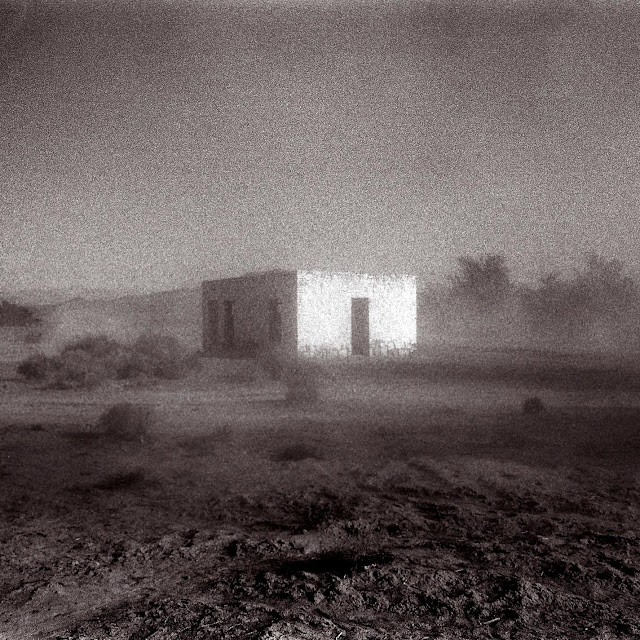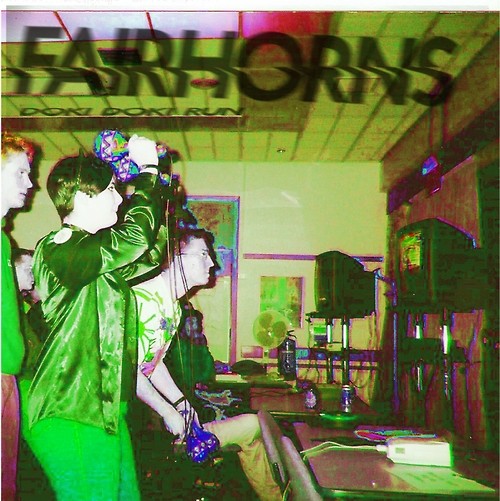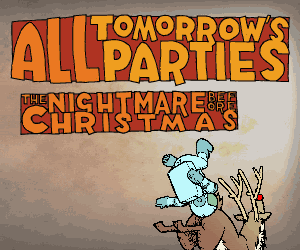
For although Race Horses are relatively close descendants of Gruff Rhys' now extinct Super Furry Animals, they may be deemed closer still to the immaculate eccentricities of Euros Childs' similarly inactive Gorky's Zygotic Mynci. Remarkably quirky, yet concertedly exoteric in terms of the nostalgic melodies at hand, they're in good company. And exclusively compatriotic company it is, too. Mates, though, throws a '70s Costello whimsy in a sensually lit room with a xylophone, a touch of gender-disorientated doo-wop, and Jones' impeccably empathetic, and with it versatile vocals. They are arguably the band's most delicate embellishment, as they waver between Hadley swoon (Nobody's Son) and Astley smooth (Furniture). Tenderly seraphic and timeless, even, on the Scott Walker-styled What Am I To Do. He's something of an undeviating joy, although beyond the elastane vocal cords lies his real flair. For Jones is the bona fide king of the chorus, albeit one yet to be officially crowned.
Built around an ascending scale, that to Sisters is a cyclical beaut as Jones directs they go "starting over again." Willingly, his minions oblige as scuttling flutters of xylophonic organicity combine with the sound of cheap, shiny guitars and unhinged harmonies vocal which recreate its unfettered delight. That of Bad Blood, meanwhile, is conveyed in an incomprehensible falsetto as it brings some glam to proceedings. Like a sequin injected into the bloodstream, it sticks; that it's strung along by an underlying autoharp ensures it sparks. As does his tuneful howling amid a thoroughly cinematic middle eight. And musically, too, Furniture is an elaborate entity. Featuring bassoons, and clarinets, and kettledrums it's a little more inventive than your standard music mag index fare. Proficiency sporadically flares up into virtuosity – the synthetic throb and incendiary chorus to My Year Abroad; the muffled orchestrations of Old And New; instrumental interlude World 6 which sounds as though it were smuggled off Pete Fowler's fictitious Monsterism Island – and that each arrangement was penned by its performer only adds to the kooky charm of the record as a whole.
Yet lyrically, there's melancholy to Jones' retrospective folly musical: Mates documents the gay abandon of a jejune youf, as it sparkles with the feel of a fading friendship. Featuring lovably forlorn musings of struggling to substitute said rapport, along with maudlin words of lonesomely retracing footsteps where four once went, the single has matured to perfection with time. And there's evidence of adulthood thematically too, as See No Green squirmishly tells of a female feigning sexual pleasure. "It's just an answer/ It's just a sound you make/ To give him pleasure/ And let your body feel awake", Jones yowls a cappella of what sounds a frivolous one-night stand, and although for reasons biological I can only come down on one side of this particular fence, I'd envisage it to be the first thing a woman wants to hear from any man and the last thing any man wants to hear from anyone. It's perceptive, evocative songwriting both in style and substance, and illuminates brilliantly how the boy has blossomed. Artistically, of course.
When we recently spoke with Meilyr, he voiced his distaste at even the thought of being considered 'part of the Furniture of British music.' Yet if there's any reason to his decidedly human rhymes, then Race Horses may now enter into a more public consciousness.
























